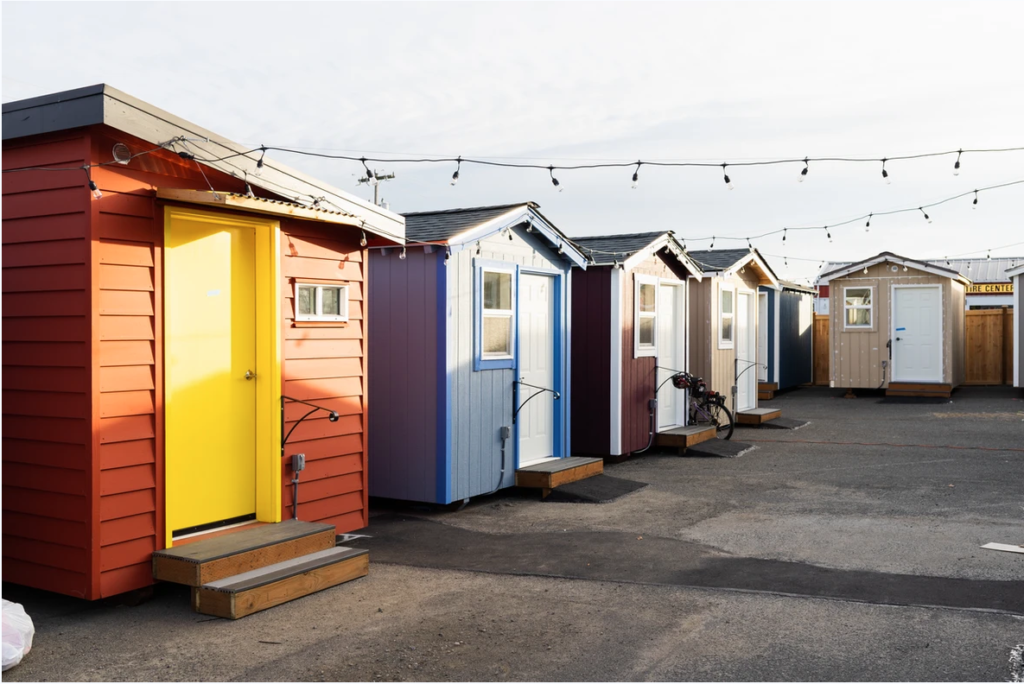Therapeutic Health Services (THS) is partnering with the Low Income Housing Institute (LIHI) to provide behavioral health services at Tiny Home Villages operated by LIHI.
Currently, Therapeutic Health Services has on-site Behavioral Health Specialists providing services at 8 Tiny Home Villages.
Multiple, persistent traumas (emotional, physical and/or sexual) often lead to homelessness and coincidentally lead to new or exacerbate existing mental health or substance use disorder issues. Homelessness itself can lead to further trauma. The loss of a home is often accompanied by loss of community, possessions and security. Most individuals experiencing homelessness have in common an internal ongoing terror, as well as loneliness, despair, fear and dread. Within the larger society, people experiencing homelessness are often marginalized, isolated, and discriminated against. Additionally, they are highly vulnerable to violence and victimization, and re-traumatization becomes a distinct possibility.
“Working with LIHI, we have seen safe, secure and dignified shelter for those who have been living outside combined with on-site behavioral health services as a stabilizing first step in the transition out of homelessness,” said THS CEO Patricia Edmond-Quinn. “Our on-site Behavioral Health Specialists also provide de-escalation and crisis management services which help make the villages safer places for all residents and help villages to be good neighbors in the areas where they are sited.”

Therapeutic Health Services is one of the region’s largest behavioral health providers with 9 service locations in the greater Puget Sound area. Offering comprehensive mental health treatment and substance use disorder counseling and recovery support, Therapeutic Health Services specializes in serving people who have traditionally been challenged accessing quality behavioral health care. This includes a substantial portion of THS’ patient population who are experiencing homelessness or are unstably housed. Approximately 25% of new THS patients are homeless at enrollment; within one year this number reduces to 10%. Once housed, even if temporarily, the real work of recovery can begin.
“We are thrilled to partner with Therapeutic Health Services to provide desperately needed behavioral health services for homeless people sheltering in our Tiny House Village program. They have been an invaluable partner, and we are already seeing the positive impact for our program participants who are on their own personal journey toward recovery and stability” said Sharon Lee, Executive Director, Low Income Housing Institute.
In 2015, LIHI started building Tiny House Villages as a response to the homelessness crisis and as a replacement for tents. Tiny houses offer tremendous benefits over tents – they are safe, weatherproof and lockable. Each secure Village has hygiene facilities, utility access, a communal kitchen with food storage and other covered and uncovered common areas.
LIHI operates 18 Tiny Home Villages statewide representing a total of 900 Tiny Homes.
